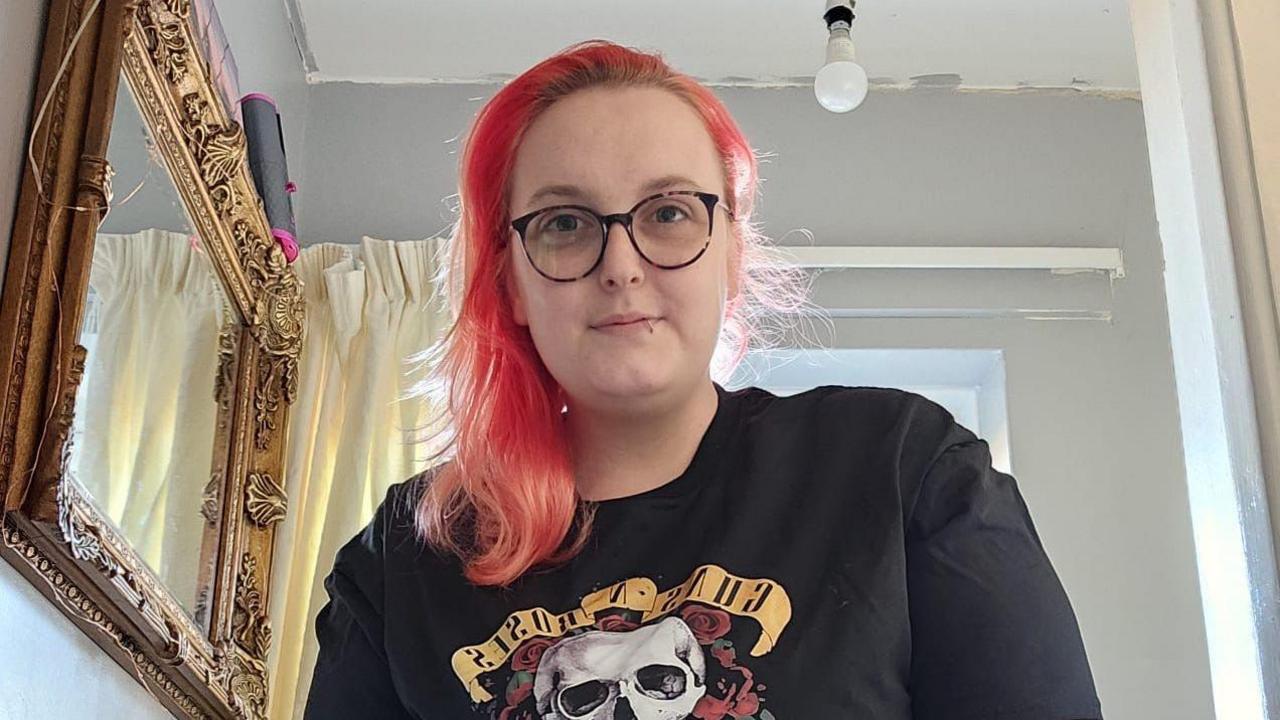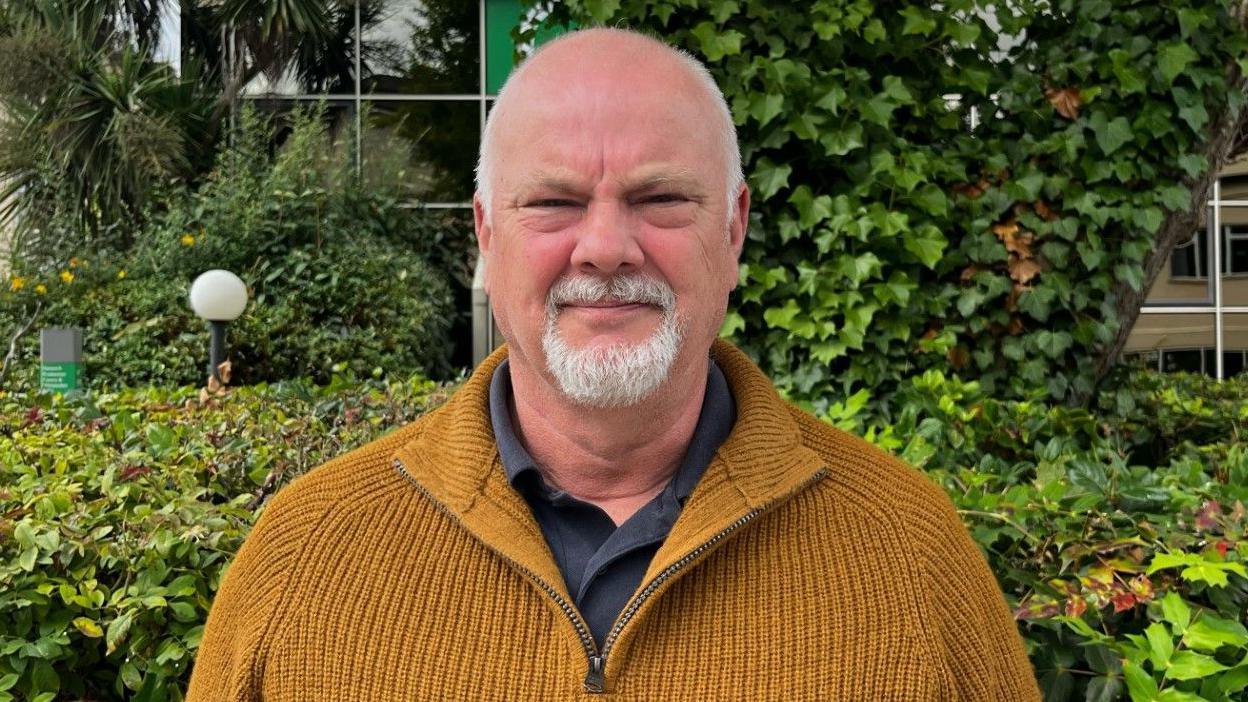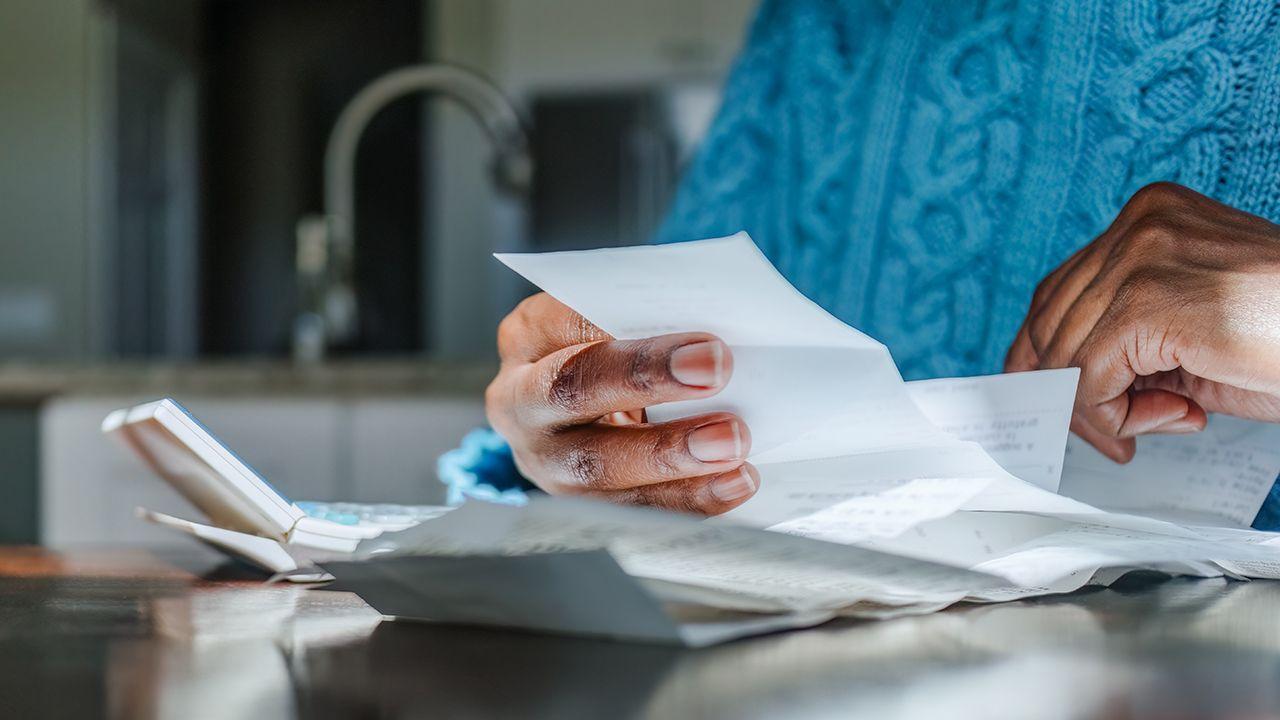Pip payments a 'lifeline' living with fibromyalgia

Alice Bishop, 28, lives with fibromyalgia
- Published
A 28-year-old who lives with fibromyalgia said the prospect of losing her Personal Independent Payment (Pip) was "deeply alarming".
Alice Bishop, from Wittersham in Kent, says she wakes up every day to a sharp pain shooting up her spine, accompanied by muscle aches that feel as though she has "run a marathon".
Under government plans for major changes to benefits, she is worried about losing her Pip payments, which she describes as a "lifeline" to her.
A Department for Work and Pensions (DWP) spokesperson said the social security system would "always be there for those with severe health conditions" and a new premium would be introduced for those who would never be able to work.
Fibromyalgia is a long-term condition that can cause pain all over the body, muscle stiffness and problems with mental processes known as "fibro-fog", according to the NHS.
Ms Bishop said she shed "tears of frustration at the relentlessness" of her condition and wished "even for a moment, that the pain would subside".
"I must summon the strength to rise and start the day for the sake of my young son," she said. "I hide my pain from him, determined not to let my struggles show.
"When the pain is particularly severe, I rely on a walking stick purchased using my Pip to navigate even the small confines of my home.
"At just 28 years old, I am determined not to let fibromyalgia confine me entirely."
'Unrealistic and unjust'
She said the support she received through Pip was "invaluable" and spent on things such as physiotherapy tape, mobility aids or "even something as simple as ibuprofen".
"It is a lifeline that enables us to manage our health and maintain some semblance of independence," Ms Bishop added.
"The idea of forcing disabled individuals back into work without adequate consideration of their circumstances is both unrealistic and unjust.
"It is imperative that the voices of disabled individuals are heard and that their needs are prioritised in policy decisions."
Pip is paid to more than 3.6 million people who have a long-term physical or mental health condition in England, Wales and Northern Ireland.
A DWP spokesperson said: "Our reforms will unlock work for sick and disabled people who can and want to be in employment - backed by a £1 billion support offer to guarantee tailored help into work - ensuring they are supported to live with dignity and independence, whilst making sure that everyone who can realise the benefits of work is expected and supported to do so."
Follow BBC Kent on Facebook, external, on X, external, and on Instagram, external. Send your story ideas to southeasttoday@bbc.co.uk, external or WhatsApp us on 08081 002250.
Related topics
Related stories
- Published27 August 2024

- Published23 August 2023

- Published13 November 2021

